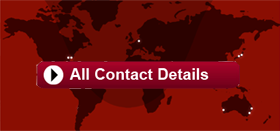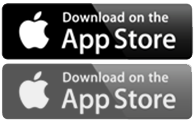International Freight for Heavy Industry
Latest News DAWR – Seasonal Measures for Brown Marmorated Stink Bug (BMSB) 1 September 2018 – 30 April 2019
DAWR (the Australian Department of Agriculture & Water Resources, formerly known as AQIS) has today provided the final measures which will be implemented for the forthcoming BMSB season, commencing on 1 September 2018 to 30 April 2019.
Details of the seasonal measures are outlined below with information regarding target risk countries, target high risk goods and treatment options.
Risks
The Brown marmorated stink bug (BMSB) is not found in Australia and needs to be kept out. It could severely impact our agricultural industries. Juveniles and adults feed on, and can severely damage, fruit and vegetable crops rendering them unsellable or reducing production yields. Adult BMSB can also be a nuisance, entering vehicles, homes and factories for shelter over winter.
They can arrive in Australia on cargo and containers shipped between September and April. This coincides with autumn and winter in the Northern Hemisphere.
You must comply with seasonal measures for certain goods arriving from certain countries that are shipped between 1 September 2018 and 30 April 2019 inclusive.
Throughout the season we will continue to review the measures based on detections of BMSB and the risk pathways.
Goods
• Certain goods (target high risk and target risk goods) manufactured, or shipped from the target risk countries as sea cargo.
• Mandatory offshore treatment of target high risk goods shipped as break bulk, in open top containers or on flat rack containers.
• Mandatory offshore treatment of target high risk goods shipped as LCL (less than container load) or FAK (freight of all kinds) prior to arrival into Australian territory.
• Mandatory treatment (onshore or offshore) of target high risk goods shipped as FCL (full container load) or FCX (full container consolidated).
• Target high risk goods shipped as FCL and FCX may be treated on arrival in Australia at the container level. However, deconsolidation or removal of goods (for example, exempt goods) will not be permitted prior to the treatment.
• Export or destruction of target high risk goods requiring mandatory offshore treatment and arriving untreated, or treated by an unapproved treatment provider, unless exceptional circumstances are granted.
• Target risk goods will be subject to increased onshore intervention through random inspection and will be directed for onshore treatment if BMSB is detected.
• Random inspection of goods after treatment to validate the effectiveness of treatments.
• Random inspection of goods from all other emerging BMSB risk countries.
• All goods must still meet standard import conditions in BICON.
Vessels
Heightened surveillance on all roll-on/roll-off (ro-ro) and general cargo vessels through additional pre-arrival reporting with a BMSB questionnaire and daily checks conducted by vessel masters.
Target risk countries
Any target high risk or target risk goods manufactured in, or shipped from these countries are subject to the BMSB seasonal measures.
Any vessel that tranships or loads goods from these countries are also subject to heightened vessel surveillance.
• United States of America
• Italy
• Germany
• France
• Russia
• Greece
• Hungary
• Romania
• Georgia
• Japan (heightened vessel surveillance will be the only measure applied).
Target high risk goods
Goods in this category require mandatory treatment for BMSB risk.
All tariffs under the following chapters are categorised as target high risk goods.
|
36 Explosives, pyrotechnics |
74 Copper |
84 Machinery |
||
|
44 Wood |
75 Nickel |
85 Electrical machinery |
||
|
45 Cork |
76 Aluminium |
86 Railway locos |
||
|
57 Carpets |
78 Lead |
87 Vehicles |
||
|
68 Stone, cement |
79 Zinc |
88 Aircraft |
||
|
69 Ceramics |
80 Tin |
89 Ships |
||
|
70 Glass |
81 Base metals |
93 Arms, ammunition |
||
|
72 Steel, iron |
82 Tools, cutlery |
|||
|
73 Steel articles |
83 Base metal |
|||
Target risk goodsGoods in this category will be subject to increased onshore intervention through random inspection. If BMSB is detected the goods will be directed for onshore treatment. All tariffs under the following chapters are categorised as target risk goods. |
||||
|
25 Salt, minerals |
31 Fertilisers |
47 Wood pulp |
||
|
26 Ores, slag, ash |
38 Chemical products |
48 Paper, cardboard |
||
|
27 Fuel oils |
39 Plastics |
49 Printed matter |
||
|
28 Inorganic chemicals |
40 Tyres, rubber |
56 Wadding, felt |
||
|
29 Organic chemicals |
46 Straw, basket ware |
|||
All other goods
BMSB seasonal measures do not apply to goods not identified as ‘target high risk’ and ‘target risk’. However, these goods may be subject to the measures if they are part of a consignment that contains target high risk and target risk goods.
Treatments
Treatment options
• heat treatment
• methyl bromide fumigation
• sulfuryl fluoride fumigation.
Treatment rates
Heat
• At 50°C or higher for at least 20 minutes. Note: the minimum temperature of the coldest part of the treated goods should reach at least 50 °C for at least 20 minutes.
Methyl Bromide
• A dose of 16 g/m3 or above, at 15°C or above, for 12 hours or longer, with an end point reading of 50% or more of the intial concentration. Note: this minimum temperature is 5°C higher than the sulfuryl fluoride conditions.
Sulfuryl Fluoride
There are two sets of rates for sulfuryl fluoride treatments.
• Treatment providers not using an approved third party program*:
• A dose of 24 g/m3 or above, at 10oC or above, for 12 hours or longer, with a minimum end point concentration of 12 g/m3
or
• A dose of 16 g/m3 or above, at 10oC or above, for 24 hours or longer, with a minimum end point concentrtiaon of 8 g/m3
• Treatment providers using an approved third party program*:
• Achieve a CT of 200 g-h/m3 or more, while conducting the treatment at 10°C or above, for 12 hours or longer, with a minimum end point concentration of 12 g/m3
or
• Achieve a CT of 200 g-h/m3 or more, while conducting the treatment at 10oC or above, for 24 hours or longer, with a minimum end point concentration of 8 g/m3
*The approved third party programs are:
• Douglas Products Fumiguide
• Ensystex II, Inc Fumicalc
Treatment minimum standards
There are minimum standards for the application of BMSB treatments. Treatments applied for biosecurity purposes are part of managing the risk of introducing exotic pests and diseases. These treatments are only effective when conducted correctly.
It is important that treatment providers understand these requirements to effectively treat consignments for import into Australia.
Our standards outline best practice methodologies for applying biosecurity treatments.
Offshore BMSB Treatment Providers SchemeThe Offshore Brown Marmorated Stink Bug (BMSB) Treatment Providers Scheme (the scheme) sets out the department’s registration and compliance requirements for BMSB treatment providers. Treatment providers who meet the requirements of the scheme will be added to our approved list of offshore BMSB treatment providers. Treatment providers in target risk countriesAll BMSB treatment providers in France, Georgia, Germany, Greece, Hungary, Italy, Romania, Russia and the United States of America must register with us. Treatment providers in non-target risk countriesTreatment providers in other countries who intend to conduct BMSB treatments for goods that are manufactured in France, Georgia, Germany, Greece, Hungary, Italy, Romania, Russia or the United States of America are also encouraged to register. Treatment certificates from providers in non-target risk countries who do not register will be accepted. These goods will be subject to increased intervention compared to those treated by approved treatment providers. Treatment providers in non-target risk countries who perform multiple BMSB treatments during the season must join the Offshore BSMB Treatment Providers Scheme. If unregistered treatment providers continue to treat and present treatment cerficates throughout the season and have not made any effort to register, future treated goods may be exported or destroyed. Fraudulent certificatesFor treatments conducted in target risk countries, we will only accept BMSB treatment certificates from approved treatment providers. We have developed a system to monitor and detect the use of fraudulent certificates. We will identify consignments that arrive in Australia with a fraudulent certificate. We will also target consignments with a certificate from a treatment provider that is not approved. These consignments will either be: • exported, or Industry consultationWe held industry information sessions in Sydney and Melbourne on 5 and 6 July 2018 where we released the draft measures. The final measures published on this page is an update of the information provided to industry during the sessions.
Freightplus can help minimise biosecurity risks on your cargo Freightplus can provide full offshore DAWR biosecurity compliance on all used machinery shipments to Australia, including BMSB risk management. For more information on our biosecurity services or on the upcoming BMSB season please contact your local Freightplus office. |
||



